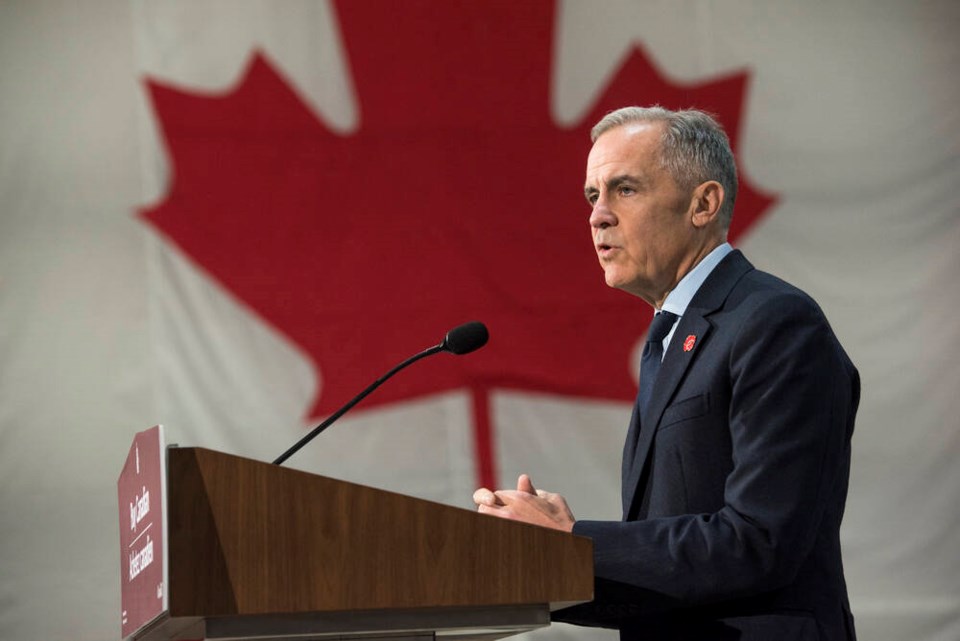Top Stories
Carney Budget Lacks Human and Environmental Focus in 2024

The recently unveiled 2024 Budget by the Government of Canada, presented by Mark Carney, has drawn criticism for its apparent neglect of both human and environmental considerations. According to public health expert Trevor Hancock, the budget reflects a dated approach to current challenges, prioritizing economic metrics over pressing social and ecological issues.
Hancock emphasizes that the budget appears to echo the sentiment of former U.S. President Bill Clinton, who famously stated, “It’s the economy, stupid.” This focus on economic indicators has left vital aspects of society—such as health, wellbeing, and sustainability—largely unaddressed. As Canada grapples with numerous contemporary challenges, including climate change and public health crises, the absence of these elements raises significant concerns.
The budget allocates substantial resources towards traditional economic growth, including tax incentives and funding for infrastructure projects. However, Hancock argues that this strategy fails to account for the interconnectedness of economy, society, and environment. “Economic growth cannot be the sole objective if we want a healthy society,” he stated during a recent interview.
Hancock urges policymakers to integrate more human-centric and environmental considerations into financial planning. He advocates for budget allocations that address mental health services, affordable housing, and climate adaptation strategies. By failing to incorporate these critical areas, the government risks perpetuating existing inequalities and environmental degradation.
In the context of the evolving global landscape, the need for a more holistic approach is evident. As countries worldwide shift towards sustainable development frameworks, Hancock believes Canada should not lag behind. He calls for a budget that reflects the urgency of today’s challenges and prioritizes the health of both people and the planet.
Critics of the budget also highlight the lack of funding for initiatives aimed at improving public health outcomes. They argue that investing in healthcare and preventive measures is crucial for long-term economic stability. “Health is a cornerstone of economic productivity,” Hancock noted, pointing out that neglecting it can lead to greater costs in the future.
The government’s current fiscal strategy, while robust in its economic ambitions, seems misaligned with the realities faced by Canadians. The budget’s focus on traditional growth metrics may offer short-term gains but fails to secure a sustainable and equitable future for all citizens.
As discussions around the 2024 Budget continue, the call for a shift towards a more inclusive approach grows louder. Advocates urge the government to reconsider its priorities in light of the pressing challenges that lie ahead.
In summary, Hancock’s critique serves as a reminder that a budget should not merely reflect fiscal objectives but should also encapsulate the values and needs of society. The path forward requires a balance between economic development and the essential human and environmental factors that contribute to the overall wellbeing of the population. The government’s response to this challenge may well define its legacy in the years to come.
-

 Education2 months ago
Education2 months agoBrandon University’s Failed $5 Million Project Sparks Oversight Review
-

 Lifestyle3 months ago
Lifestyle3 months agoWinnipeg Celebrates Culinary Creativity During Le Burger Week 2025
-

 Science3 months ago
Science3 months agoMicrosoft Confirms U.S. Law Overrules Canadian Data Sovereignty
-

 Health3 months ago
Health3 months agoMontreal’s Groupe Marcelle Leads Canadian Cosmetic Industry Growth
-

 Science3 months ago
Science3 months agoTech Innovator Amandipp Singh Transforms Hiring for Disabled
-

 Technology3 months ago
Technology3 months agoDragon Ball: Sparking! Zero Launching on Switch and Switch 2 This November
-

 Education3 months ago
Education3 months agoRed River College Launches New Programs to Address Industry Needs
-

 Technology3 months ago
Technology3 months agoGoogle Pixel 10 Pro Fold Specs Unveiled Ahead of Launch
-

 Technology1 month ago
Technology1 month agoDiscord Faces Serious Security Breach Affecting Millions
-

 Business2 months ago
Business2 months agoRocket Lab Reports Strong Q2 2025 Revenue Growth and Future Plans
-

 Science3 months ago
Science3 months agoChina’s Wukong Spacesuit Sets New Standard for AI in Space
-

 Education3 months ago
Education3 months agoAlberta Teachers’ Strike: Potential Impacts on Students and Families
-

 Technology3 months ago
Technology3 months agoWorld of Warcraft Players Buzz Over 19-Quest Bee Challenge
-

 Business3 months ago
Business3 months agoNew Estimates Reveal ChatGPT-5 Energy Use Could Soar
-

 Business3 months ago
Business3 months agoDawson City Residents Rally Around Buy Canadian Movement
-

 Technology1 month ago
Technology1 month agoHuawei MatePad 12X Redefines Tablet Experience for Professionals
-

 Education3 months ago
Education3 months agoNew SĆIȺNEW̱ SṮEȽIṮḴEȽ Elementary Opens in Langford for 2025/2026 Year
-

 Technology3 months ago
Technology3 months agoFuture Entertainment Launches DDoD with Gameplay Trailer Showcase
-

 Business3 months ago
Business3 months agoBNA Brewing to Open New Bowling Alley in Downtown Penticton
-

 Technology3 months ago
Technology3 months agoInnovative 140W GaN Travel Adapter Combines Power and Convenience
-

 Science3 months ago
Science3 months agoXi Labs Innovates with New AI Operating System Set for 2025 Launch
-

 Technology3 months ago
Technology3 months agoGlobal Launch of Ragnarok M: Classic Set for September 3, 2025
-

 Technology3 months ago
Technology3 months agoNew IDR01 Smart Ring Offers Advanced Sports Tracking for $169
-

 Technology3 months ago
Technology3 months agoDiscover the Relaxing Charm of Tiny Bookshop: A Cozy Gaming Escape










